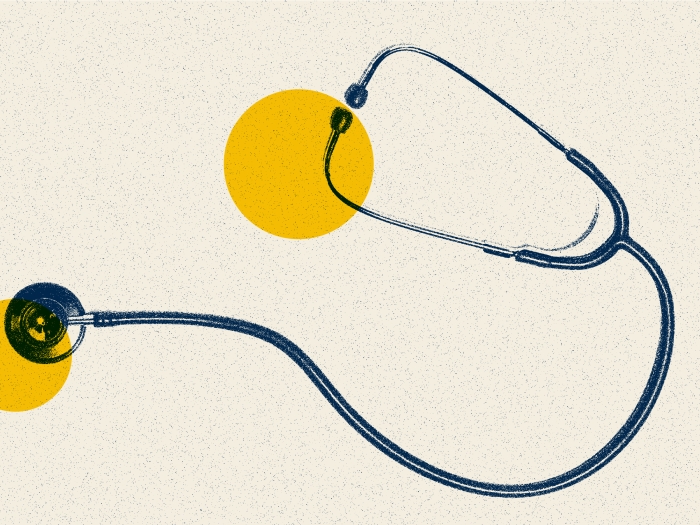A rigorous lifestyle change and pediatric epilepsy therapy helps preschooler go from daily seizures peaking at 10-25 a day to a seizure-free childhood
5:00 AM
Author |

Four-year-old Elliott “Ellie” Stevenson’s breakfast often includes smoked beef sausage links, a handful of raspberries and a side of whipped cream.
Later, she may have a slice of salmon and cup of shredded cheese for lunch and her favorite current snack: a homemade mix of four crackers, two macadamia nuts, four pecans and three dark chocolate chips.
Every ingredient in every meal is weighed down to the exact gram to ensure a precise ratio of fat to protein and carbs.
That’s because for the preschooler, her diet is essential to preventing seizures from epilepsy.
Last year, Ellie experienced up to 40 seizures a week, finding limited relief through five different anti-seizure medications.
Today, after nearly a year of working with the ketogenic diet team at University of Michigan Health C.S. Mott Children’s Hospital – overseen by a pediatric neurologist and dietitian – she’s celebrating six months of seizure freedom.
“It used to feel impossible to leave the house. When this started, we had a 3-year-old who was supposed to be exploring her environment but without warning could just fall to the ground 10 or more times a day,” her mom Katrina Stevenson said. “There were so many hazards that she had to wear a helmet and protective gear.”
“Just the simple act of letting her walk by herself, explore the whole yard or play on the playground without holding her hand now feels like a miracle.”
Ellie is among more than 100 children, from newborn aged to 21 years old, who receive this type of therapy every year through the Comprehensive Pediatric Epilepsy Program at Mott.
The goal of the ketogenic medical diet, discovered over a century ago and today used alongside seizure medications, is to produce ketones through a specific balance of fat, protein and carbohydrates. This shifts the body’s fuel source from glucose, or sugars, to ketones, or fat.
The change in the body’s metabolism affects important pathways in the brain. While there are different theories behind why the mechanism works, ketones – which the brain can use as an alternative source of energy – appear to have an anti-epileptic effect and help improve seizure control, says Mott pediatric neurologist Laurel Reed, M.D.
An estimated 50-70% of patients treated with this diet see a significant reduction in seizures, often helping reduce medications.
“Not everybody responds the same way, but this diet seems to have the best outcomes in kids with Ellie’s specific type of epilepsy,” Reed said.
“Ellie’s story is the best-case scenario, living her childhood without seizures, developmentally typical and thriving.”
But the lifestyle means hard work: Shopping for uncommon items. Rigorous meal planning. Calculators and scales to weigh every ingredient. Changing menus based on a young child’s ever-evolving food preferences.
“It’s an enormous undertaking, especially for families of little ones who can be picky and opinionated about what they eat,” Reed said.
“Mealtime can be a struggle even for a typical family, let alone having the pressure of relying on food as seizure treatment. We provide as much support as possible, but families really do the hard work every day.”
From a healthy kid to daily seizures
It was summer of 2022 when Katrina Stevenson noticed unusual silence while getting ready for work in the morning.
When she checked on Ellie, she appeared to be asleep on her bedroom floor. But a camera monitor showed her then three-year-old daughter having a seizure lasting more than a minute long before collapsing.
After an emergency room visit, electroencephalogram monitoring and rapid daily increases in seizures, the Jackson-area family was referred to Mott where they received an official diagnosis of epilepsy with myoclonic-atonic seizures, or EMAtS, also known as Doose syndrome.
Medications helped little and made her sleepy and lethargic.

"The side effects from the medications made her sluggish and tired, and not herself," her father Greg Stevenson said.
The family began keeping Ellie home from childcare because even the smallest cold could lead to nonstop seizures, sometimes up to 100 a day, her family says.
The Mott team suggested the family try the ketogenic diet. The caveat: it would mean a dramatic lifestyle change.
“We were willing to try anything,” Katrina Stevenson said.
New menus to treat epilepsy
That’s when they started working closely with Mott pediatric epilepsy dietitian Jwana Al Mulki, R.D.
“The diet requires a lot of energy, preparation and dedication. Those first few weeks on the diet can be very overwhelming for both the parents and the child. The key is to plan ahead and stay organized,” Al Mulki said.
The first week required Ellie be admitted to the hospital where the team could monitor daily labs, assess her tolerance to the diet and test out different ratios of fat to protein and carbs to optimize ketone production. This phase often feels like what has been described as the “keto flu” which can cause nausea and stomach discomfort.
The family is then sent home with a few weeks’ worth of meals, but they continue to work closely with the dietitian to develop more menus, monitor growth, and check blood work to make sure that certain vitamins and minerals, in addition to cholesterol levels, are within a healthy range.
The Stevensons have now tried nearly 300 different keto-friendly recipes, from pizza and pasta to muffins and cookies. Regular communication with Al Mulki helped ensure every bite Ellie took set her up for success.
A blood meter also allowed her parents to measure her ketone and glucose levels at home.
“The ketogenic diet offers a lot of hope for the families of children with treatment-resistant epilepsy. However, it also means a big change in the family’s lifestyle. It took an incredible amount of hard work, creativity, and patience to allow Ellie to adjust to this diet with relative ease,” Al Mulki said.
Al Mulki says her role as a dietitian is to equip parents with the knowledge needed to be successful on the diet, but ultimately, the families become the nutrition experts as they are the ones in charge of managing the diet at home.
“Ellie’s family was committed to doing whatever it takes to give her the best chance of succeeding on the diet,” she said.
“Whether it was family dinners, school snacks or holiday meals, parents always made sure Ellie felt included. To see Ellie doing so well, it makes it all worth it. She is very resilient, and we are all very proud of her.”
Some staples for the Stevensons: low carb pizzas with low sugar pizza sauce mixed with mayonnaise and cheese topped with salami, high fat butter, oils and creams, cashews, hot dogs and ChocZero desserts.
Each meal requires careful measurements through a keto diet calculator and food scale. Her mom has even mastered a few recipes to replicate what Ellie’s class may be eating at school, including donuts and Halloween and holiday candy and treats.
Supplements are needed to make up for foods that aren’t a primary part of the diet like fruits and vegetables, and Ellie also eats avocado oil through a syringe every morning and evening to increase ketones.
The therapy started in January 2023 and almost immediately Ellie’s family noticed a reduction in seizures.
Since April, she hasn’t experienced a single one.
“We kept waiting for another seizure to come,” Katrina Stevenson said. “One day without any, then two, then weeks. It’s still pretty unbelievable.”
Enjoying childhood without seizures
In summer of 2023, the Stevensons were finally able to take a long awaited trip to Disney World.
They were equipped with a backpack full of keto friendly snacks and treats to match the occasion, like a Mickey-shaped chocolate fat bomb topped with sprinkles.
“That was our celebration after months of hard work and treatment and reaching that milestone of Ellie being seizure free,” Greg Stevenson said.
“Ellie is just the bravest kid and has been such a champ through all of this. It’s incredible to see her blossom back into her silly, energetic self.”

Today, she’s able to enjoy favorite activities like family hikes, playing soccer, swimming and playing freely with her cousins.
Ellie’s Mott care team says it’s possible that as she gets older she may be able to wean off her anti-seizure medication and eventually even age out of her epilepsy.
“We were so scared when all of this started but every person at the hospital has been there every step of the way. We’ve had so much support,” Greg Stevenson said.
“It’s hard to reflect on where we were last year compared to where we are today,” he added. "It’s amazing to finally feel like we have this under control. It’s reassuring to know we have the best care and team to make sure we’re doing everything possible to take the best care of Ellie.”

Explore a variety of healthcare news & stories by visiting the Health Lab home page for more articles.

Department of Communication at Michigan Medicine
Want top health & research news weekly? Sign up for Health Lab’s newsletters today!





